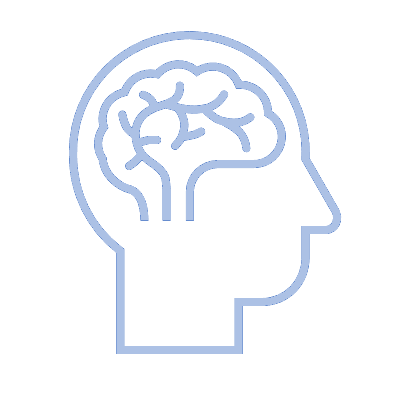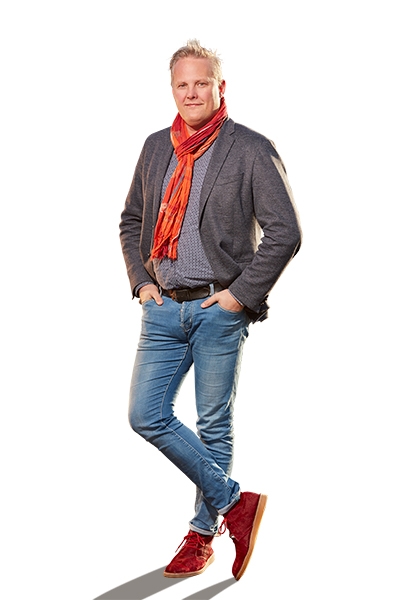Best rating
We create tools to bring organisations into balance globally
Methodological factors – the blue room
Focus areas of The Blue Room
System orientation – Detail orientation – Security orientation
How does the individual perceive reality? How is reality constructed? How do we get from A to B quickly and efficiently? What are the possibilities and limits of this reality? How do we acquire knowledge about the world?
The method factors are about everything we do, figuratively speaking, when we sit at our desk and mentally organise the reality around us in order to solve a specific task. How we think before we act.
We establish a method by which we attack and process the tasks we are faced with.

Work life motive:
Increased complexity and factual knowledge of the world in a limited area.
Work life roles:
Specialists, experts.
Underlying emotional motive:
Safety and security.
Learning:
Through increased factual knowledge. Knowledge of.
People who feel at home in the blue room prefer order, regularity and stability.
They thrive on a clear framework, clear rules and fixed structures. They are people who prefer to solve tasks based on well-defined and precise knowledge in a known and predictable universe.
In the blue room, they thrive in work situations where the success criteria are clear, where things are under control and where factual and professional knowledge is an important basis for solving tasks.
Performance factors – The red room
When we take the evolutionary leap from our comfort and safety zone in the blue room and leap into the world, we take the best and most useful things from the “blue” period with us. But what was once an end in itself now becomes a means to strive for and achieve greater personal life goals.
Focus areas for the red room
Performance motive – Self-confidence – Independence
At some point in our lives, the need and desire to define ourselves as a subject and emerge in our uniqueness and difference from others grows.
We need to set goals, learn by trying, test our will, perform and develop into an independent and unique individual.
We must define ourselves in relation to others and set our own unique goals. We must perform and strive to achieve our life goals.

Work life motive:
Striving to reach material goals and achieve excellence.
Work life roles:
Provider of results
Emotional motive:
Self-assertion
Learning:
By trying. Gaining experience and personal skills.
Who takes the leap?
People who score high on Achievement Motive, Confidence and Autonomy feel at home in the red room. They are freedom seekers and stand on a strong personal and mental platform from which they are well equipped to get through difficult, critical and challenging tasks.
They have an inner drive to constantly perform tasks better, faster and more efficiently, and they have a positive view of themselves, their capabilities and possibilities
Relationship factors – The green space
Focus areas for green space
Social Understanding – Trust – Extroversion
Throughout our lives, we have had to relate to and enter into relationships with other people.
On our life journey, we (perhaps) realise that in order to connect with others in deeper relationships and love, but also to achieve our life goals, what we have learned so far is no longer enough. Until now, we have primarily focused on ourselves.
To move forward, we must learn to put ourselves in the other person’s place, to give the other person space, to listen to the other person, to listen to others in order to understand the contexts we are part of. We become curious about what people are, what they think and feel, and we realise that this helps us move forward in life.

Work life motive:
Insight into social processes as a means to achieve common goals
Work life roles:
Responsibility for all relational aspects of the contexts in which you are involved
Emotional motive:
Love and quality of life in connection with others
Learning:
Through emotions. Insight into both oneself and other people. Seeing and understanding the other.
Who takes the leap?
People who score high on Social Understanding, Trust and Extroversion feel at home in the green room.
They show great interest in their fellow human beings and spend a lot of time empathising and understanding the thoughts, feelings and actions of others.
They are socially curious, open and tolerant, and through their focus on emotions and relationships, they have built up a basic social competence.
Personal growth factors – The Yellow Room
When we make the leap from Green to Yellow space, we break out of the known and tested mental landscapes and move into unknown territory.
We go on a journey of discovery and we don’t know what’s hiding on the other side of the horizon. We try something completely new. Both externally in the form of new actions, new places and new situations.
And on the inside in the form of reflecting on our existence and achieving new realisations and stories about who we are and why we are here.
Focus areas for the yellow space
Intuition – Integrity / Conflict Resolution – Influence – (Self)Insight / Ambiguity
At some point, we (maybe) travel into unknown lands, cross some of the known boundaries, seek new realisations and new goals.
We do this out of a sense that we have the potential for more. Driven by curiosity, hunches and the desire for ultimate freedom.
Both internal and external factors and circumstances can trigger such a movement. We break away and embark on a journey into the unknown. We move from the green to the yellow room. And we learn through reflection and critical consideration of ourselves, our actions and our thoughts.
We look back and consider our entire life journey so far, and we look forwards to something that is still only inklings and sensations of something new.

Work life motive:
To change to achieve higher goals
Work life roles:
Change agent
Emotional motive:
Self-actualisation and fulfilling your life mission
Learning:
Through reflection, self-awareness and recognition
Who takes the leap?
People who score high on Intuition, Integrity, Influence and Clarity feel at home in the yellow room.
They have the personal and mental freedom to realise their inherent potential in many areas of life.
They have an optimistic belief in the future and its possibilities, they maintain their personal integrity when their character and views are attacked, and they have the desire and willingness to seek influence in both their own and others’ lives.
Summary
Some people make it all the way from The Blue Room to The Yellow Room several times during their lives.
As individuals, we risk facing situations in our lives that force us re-think our way of living completely. We may have to start all over again and figure out a way to gain new knowledge about the way our world works. When the foundation of our knowledge shifts, we are often forced to change the way we perceive and experience reality. We might see this new position as a chance to rethink our mental platforms. We are forced to look at our ego in a new way, make new and different relationships, and ask completely new questions to ourselves about what life is all about.

Steen Wæver Poulsen
CEO & Owner of IPA Nordic